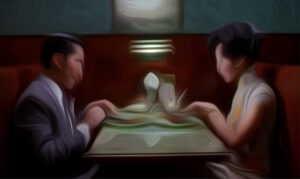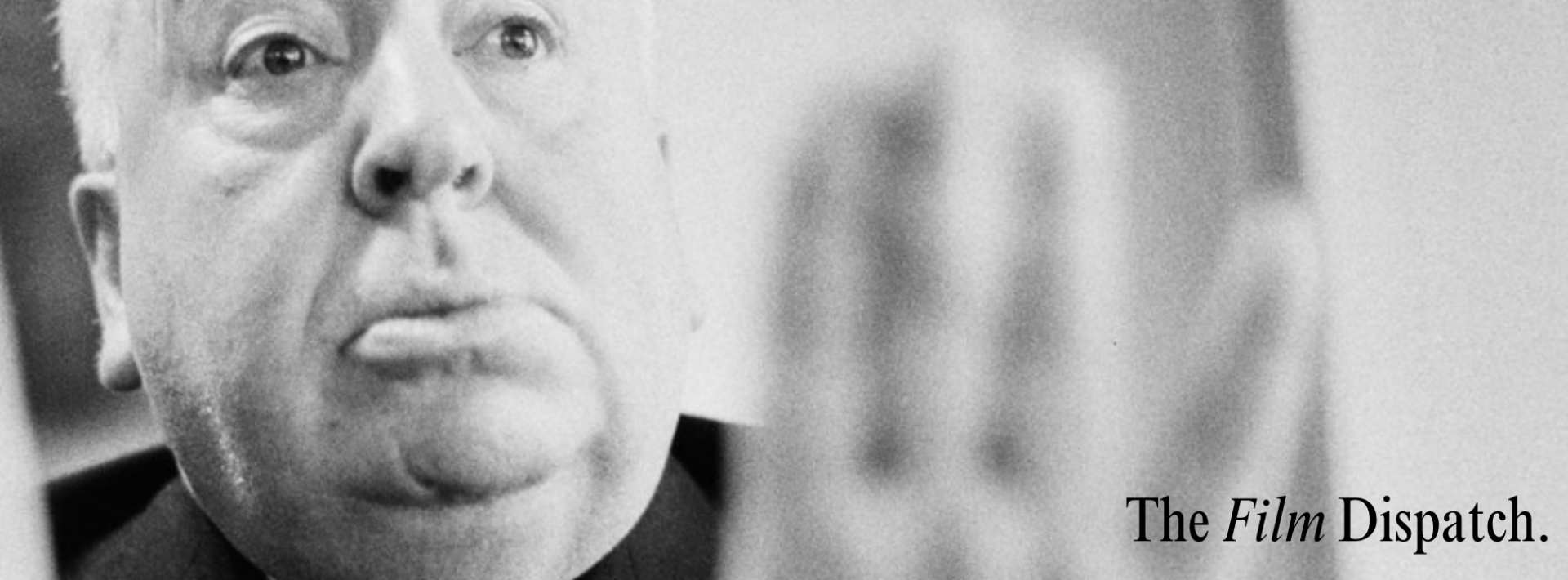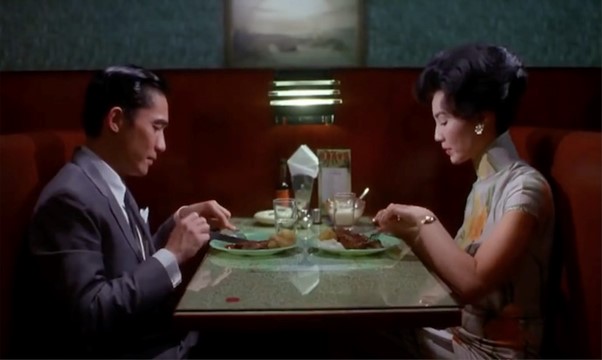
In the Mood for Love (Wong Kar-Wai, 2000) is an artistic masterpiece. From Tony Leung and Maggie Cheung’s acting, to the lighting and composition of the frames, the film is elaborately composed to render the elegance of Eastern beauty and, at the same time, sadness.
The film is set in Hong Kong in 1962. Two couples have moved into adjoining flats and become neighbours. After discovering that their spouses are having an affair with each other, Mrs Chan (Maggie Cheung) and Mr. Chow (Tony Leung) seek comfort from each other while trying not to also commit adultery. As time goes by, the platonic love between them grows, passionate yet restrained. Sadly, their love can never be acknowledged in public, or even privately. The sadness and regret of not being able to love the one they truly love imbues the film. Trapped in a small section of Hong Kong, their love is doomed to grow like a radiant flower without fruit. The beauty is instantaneous, but the sorrow is everlasting.
One of the most famous scenes in the film takes places in a hotel room, room number 2046. The closed brown doors and fluttering red curtains mirror Mr Chow’s dark clothes and Mrs Chen’s bright cheongsam. Their love cannot stay still, like curtains teased by the wind. The erotic staging allows the audience to imagine whether the protagonists will cross the line from comfort to betrayal. But the line is never crossed.
In the film, the cramped corridors of the apartment are framed with the protagonists sitting in the middle or the corner, leaving huge blacks spaces of wall. This breath-taking limitation of space symbolizes the forbidden affection between the couple. The person in the frame seems to be more fragile in the face of such overwhelmingly hopeless love and loneliness.
Equally restrained is the film’s way of handling the rumours around the couple. There is never a sequence or shot of people whispering about the close relationship between Mr. Chow and Mrs Chen. We get one gentle remind from Mrs. Suen (Rebecca Pan). In that moment, the audience learns that the couple are at the epicentre of a whirlpool of rumours.
This reminded me of a scene once described in Eileen Chang’s novel: a woman lives with her husband’s family in a courtyard house. Everyone can hear everyone else’s movements, conversations and, of course, secrets. The house is too small to hide people’s loves and hates. They even have to cry silently. Mr. Chow and Mrs. Chen face the same scenario. The audience feels more pity for the couple, whose secret grows in such an environment and their love feels more forbidden.
At the end of the film, Mr. Chow cannot speak of his love aloud. Instead, he tells his secrets to a hole at Angkor Wat, the thousand-year-old ruins. Their love is a secret doomed to be buried in a hole. It is like a window coated with dust: Chow can see the past, but he can never go back.
Written for The Film Dispatch by Shuhao ‘Alain’ Chen.

